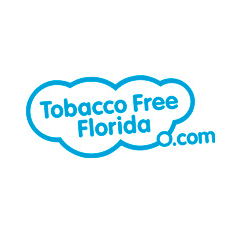It's a New Day in Public Health.
The Florida Department of Health works to protect, promote, and improve the health of all people in Florida through integrated state, county, and community efforts.
Raising Awareness Of The Dangers Of Menthol Cigarettes
May 29, 2015

FOR IMMEDIATE RELEASE
May 29, 2015
Contact: Communications Office
(850) 245-4111
or Natalie Veliz
media@tobaccofreeflorida.com
(850) 574-4207
~ World No Tobacco Day is May 31 ~
TALLAHASSEE—The Florida Department of Health's Tobacco Free Florida Program is raising awareness about the dangers of menthol cigarettes during World No Tobacco Day. Every year on May 31, the World Health Organization (WHO) and the public health community observe World No Tobacco Day to highlight the health risks associated with tobacco use and advocate to reduce tobacco consumption.
This year, the National African American Tobacco Prevention Network's (NAATPN) approach to World No Tobacco Day is "No Menthol Sunday." Tobacco Free Florida is joining this important movement to educate Floridians about the added dangers of menthol cigarettes.
Evidence from once-secret tobacco industry documents shows that tobacco companies have deliberately targeted young people and African American populations with menthol cigarette advertising.1,2, 3, 4 In fact, data has shown that youth cigarette smokers, ages 12 to 17, use menthol at higher rates than adults, even those ages 18 to 25.5,6
Menthol cigarettes provide a minty flavor and cooling sensation, thus covering up the taste of tobacco and reducing throat irritation caused by smoking.7 As a result, menthol cigarettes lead to increased smoking initiation among youth and young adults. Menthol cigarette smokers have greater addiction to tobacco and decreased success in quitting smoking, according to a report released by the U.S. Food and Drug Administration (FDA) in 2013.8
"Many Floridians are unaware that menthol makes cigarette smoking easier to start and harder to quit,"9 said Tobacco Free Florida Bureau Chief Shannon Hughes. "We want to raise awareness about this serious concern and let menthol users know that while quitting can be difficult, the state has free services that can help significantly."
Tobacco Free Florida offers residents free services that can double a tobacco user's chances of successfully quitting.10 Tobacco Free Florida's 3 Free & Easy Ways to Quit include:
- CALL: Call the Florida Quitline at 1-877-U-CAN-NOW to speak with a Quit Coach® who will help you assess your addiction and help you create a personalized quit plan.
- CLICK: Tobacco Free Florida's online cessation tool can be accessed at tobaccofreeflorida.com/webcoach.
- COME IN: Local face-to-face help is available with the help of Area Health Education Centers, find one near you at tobaccofreeflorida.com/ahec.
For more information, please visit www.tobaccofreeflorida.com.
ABOUT WORLD NO TOBACCO DAY
World No Tobacco Day is a national day of awareness highlighting the health risks associated with tobacco use and advocating for effective policies to reduce tobacco consumption. World No Tobacco Day was created by the World Health Organization (WHO) in 1987, and is observed by all United Nations (UN) Member States annually on May 31.
ABOUT TOBACCO FREE FLORIDA
The department's Tobacco Free Florida campaign is a statewide cessation and prevention campaign funded by Florida's tobacco settlement fund. Tobacco users interested in quitting are encouraged to use one of the state's three ways to quit. Since 2007, more than 126,140 Floridians have successfully quit, using one of these free services. To learn more about Tobacco Free Florida and the state's free quit resources, visit www.tobaccofreeflorida.com or follow the campaign on Facebook at www.facebook.com/TobaccoFreeFlorida or on Twitter at www.twitter.com/tobaccofreefla.
The department works to protect, promote and improve the health of all people in Florida through integrated state, county and community efforts.
Follow us on Twitter at @HealthyFla and on Facebook. For more information about the Florida Department of Health please visit www.floridahealth.gov.
1 U.S. Department of Health and Human Services. Preventing Tobacco Use Among Youth and Young Adults: A Report of the Surgeon General. Atlanta: U.S. Department of Health and Human Services, Centers for Disease Control and Prevention, National Center for Chronic Disease Prevention and Health Promotion, Office on Smoking and Health, 2012
2 Kreslake JM, Wayne GF, Connolly GN. The menthol smoker: tobacco industry research on consumer sensory perception of menthol cigarettes and its role in smoking behavior. Nicotine Tob Res. Apr 2008;10:705-715.
3 Cruz TB, Wright LT, Crawford G. The menthol marketing mix: Targeted promotions for focus communities in the United States. Nicotine Tob Res. 2010;12(SUPPL. 2)
4 Anderson SJ. Marketing of menthol cigarettes and consumer perceptions: a review of tobacco industry documents. Tob Control. 2011;20 Suppl 2:ii20-28.
5 Giovino GA, Villanti AC, Mowery PD, et al. Differential trends in cigarette smoking in the USA: is menthol slowing progress? Tob Control. Sep 27 2013.
6 Caraballo RS, Asman K. Epidemiology of menthol cigarette use in the United States. Tob Induc Dis. 2011;9 Suppl 1:S1.
7 Krelake JM, Wayne GF, Connolly GN. The menthol smoker: Tobacco industry research on consumer sensory perception of menthol cigarettes and its role in smoking behavior. Nicotine & Tobacco Research 2008;10(4): 705-715; Giovino GA, Sidney S, Gfroerer JC, O'Malley PM, Allen JA, Richter PA, Cummings, KM. Epidemiology of menthol use. Nicotine & Tobacco Research 2004;6(1): S67-S81.
8 FDA. Preliminary Scientific Evaluation of the Possible Public Health Effects of Menthol Versus Nonmenthol Cigarettes. July 2013. Web. http://www.fda.gov/downloads/ScienceResearch/SpecialTopics/PeerReviewofScientificInformationandAssessments/UCM361598.pdf
9 U.S. Department of Health and Human Services. The Health Consequences of Smoking—50 Years of Progress: A Report of the Surgeon General. Atlanta: U.S. Department of Health and Human Services, Centers for Disease Control and Prevention, National Center for Chronic Disease Prevention and Health Promotion, Office on Smoking and Health, 2014.
10 Fiore MC, Jaen CR, Baker TB, et al. Treating tobacco use and dependence: 2008 update. Clinical practice guideline. Rockville, MD: US Department of Health and Human Services, Public Health Service; 2008. Available at http://www.surgeongeneral.gov/tobacco/treating_tobacco_use08.pdf.




Connect with DOH